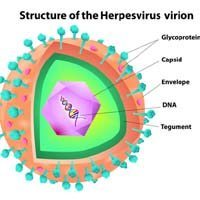Depression After Mesothelioma Diagnosis: Women Are at Highest Risk

White women are more likely than other patients to experience depression after mesothelioma diagnosis.
That word comes from researchers at the University of Florida. The team analyzed the cases of more than 120,000 patients with late-stage cancer.
Although all patients face a risk of depression with an advanced cancer diagnosis, the problem appears to be worse among white women.
The research team says understanding how cancer news affects patients can help doctors avoid diagnosis bias.
Cancer Records from the SEER Database
The Florida study provides important insights into who is likely to get depression after mesothelioma diagnosis.
The study included 123,066 advanced cancer cases from the Surveillance Epidemiology and End Results (SEER) database. All study subjects received their diagnosis between 2001 and 2013.
Although the study did not focus specifically on mesothelioma patients, it did include lung cancer patients. Pleural mesothelioma shares many common characteristics with lung cancer. It is almost always diagnosed at an advanced stage.
Is Depression After Mesothelioma Diagnosis Rising?
The study revealed that depression after mesothelioma diagnosis is likely to be higher today than it was even six years ago. From 2001 to 2013, the incidence of depression among advanced cancer patients rose nearly nine percent.
Most cases of depression arose within the first three months after a stage IV cancer diagnosis.
Among the more than 19,000 non-Hispanic white patients, one in five reported depression. In non-Hispanic black patients, the number dropped to 15.9 percent. Hispanic cancer patients had the lowest incidence of depression at 12.7 percent.
Gender may also play a role in depression after mesothelioma diagnosis. Twenty-two percent of women in the study reported depression versus 16 percent of men.
“Non-Hispanic whites and females were still independent predictors of higher risk of postdiagnosis depression,” conclude the researchers.
Managing Post-Diagnosis Depression
For people at higher risk of depression after mesothelioma diagnosis, staying active may help.
- A 2017 study found that mesothelioma patients who give up activities they used to love are more prone to depression.
- Last year, Australia’s Clinical Oncology Society recommended exercise as “a safe and effective intervention” to counteract the psychological effects of cancer and treatment.
Another study earlier this year finds mesothelioma surgery may also help. Although their depression spiked in the months immediately after surgery, peritoneal mesothelioma patients were happier two years after surgery than before it.
Source:
Huo, J, et al, “Patterns of Postdiagnosis Depression Among Late-Stage Cancer Patients: Do Racial/Ethnic and Sex Disparities Exist?”, July 11, 2019, American Journal of Clinical Oncology, Epub ahead of print, https://insights.ovid.com/crossref?an=00000421-900000000-98798
Cormie, P, et al, “Clinical Oncology Society of Australia position statement on exercise in cancer care”, May 7, 2018, The Medical Journal of Australia, Epub ahead of print
Ali, YM, et al, “Effect of Cytoreductive Surgery and Hyperthermic Intraperitoneal Chemotherapy on Quality of Life in Patients with Peritoneal Mesothelioma”, May 8, 2019, Annals of Surgical Oncology, Epub ahead of print, https://www.ncbi.nlm.nih.gov/pubmed/31069554





